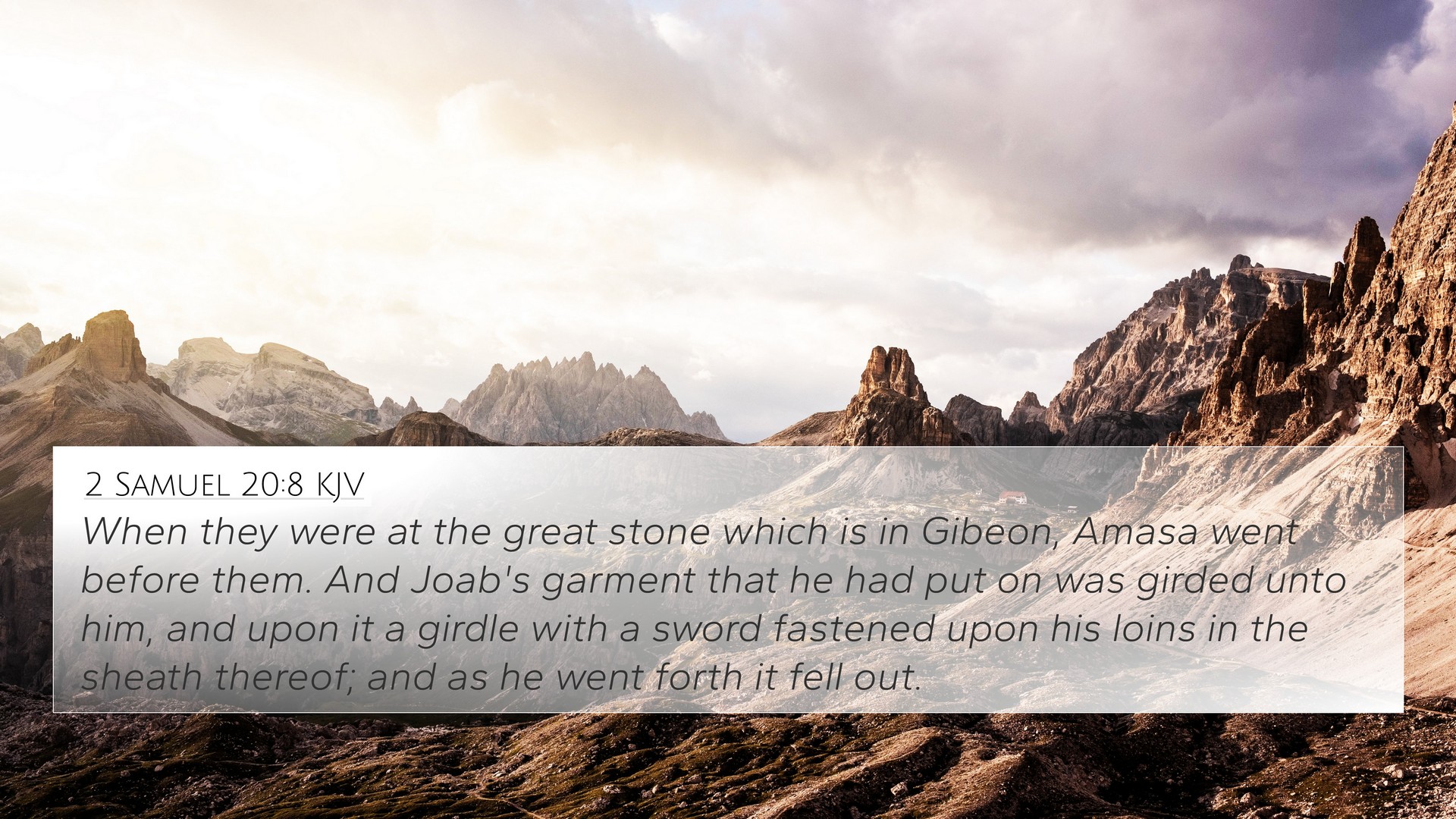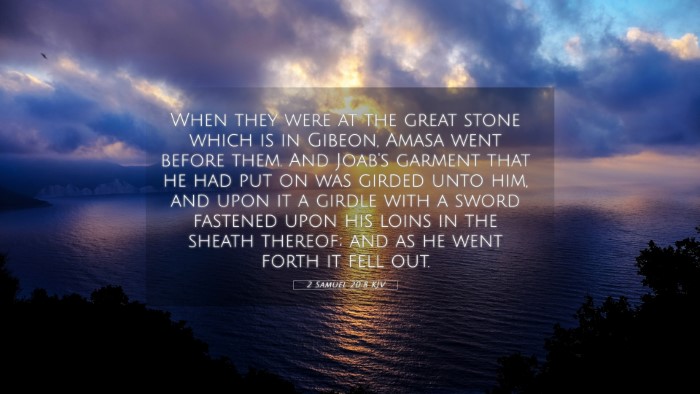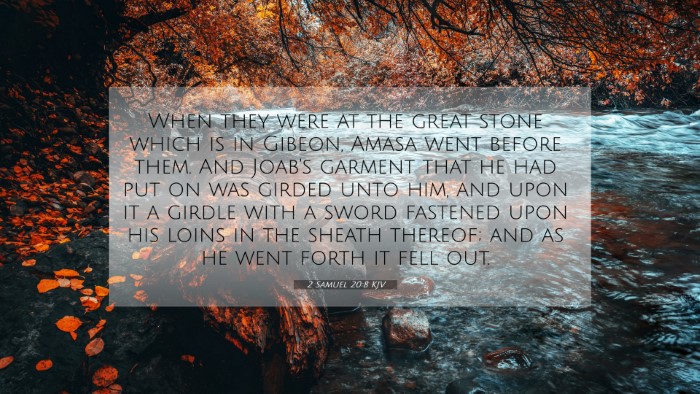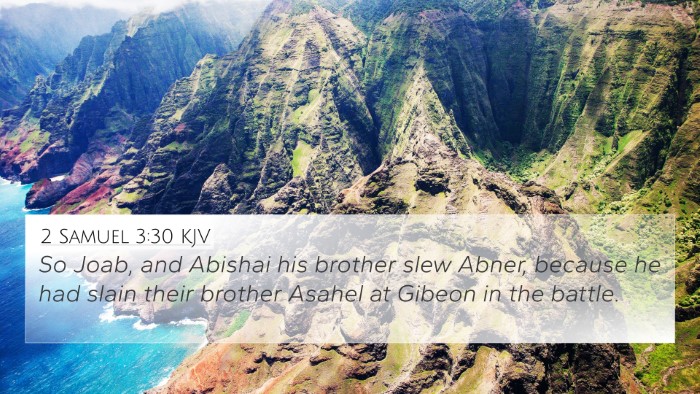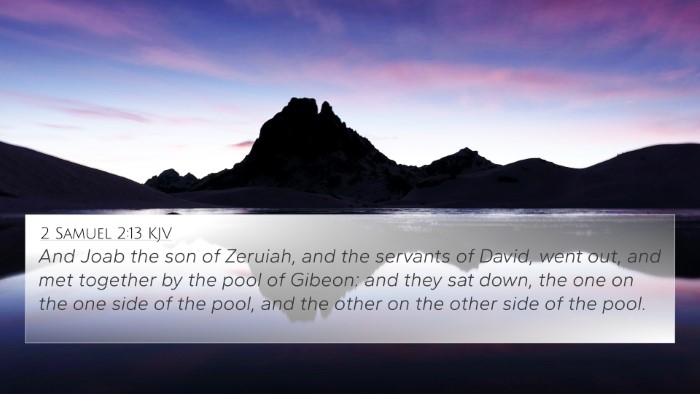Old Testament
Genesis Exodus Leviticus Numbers Deuteronomy Joshua Judges Ruth 1 Samuel 2 Samuel 1 Kings 2 Kings 1 Chronicles 2 Chronicles Ezra Nehemiah Esther Job Psalms Proverbs Ecclesiastes Song of Solomon Isaiah Jeremiah Lamentations Ezekiel Daniel Hosea Joel Amos Obadiah Jonah Micah Nahum Habakkuk Zephaniah Haggai Zechariah MalachiVerse
2 Samuel 20:1 2 Samuel 20:2 2 Samuel 20:3 2 Samuel 20:4 2 Samuel 20:5 2 Samuel 20:6 2 Samuel 20:7 2 Samuel 20:8 2 Samuel 20:9 2 Samuel 20:10 2 Samuel 20:11 2 Samuel 20:12 2 Samuel 20:13 2 Samuel 20:14 2 Samuel 20:15 2 Samuel 20:16 2 Samuel 20:17 2 Samuel 20:18 2 Samuel 20:19 2 Samuel 20:20 2 Samuel 20:21 2 Samuel 20:22 2 Samuel 20:23 2 Samuel 20:24 2 Samuel 20:25 2 Samuel 20:26